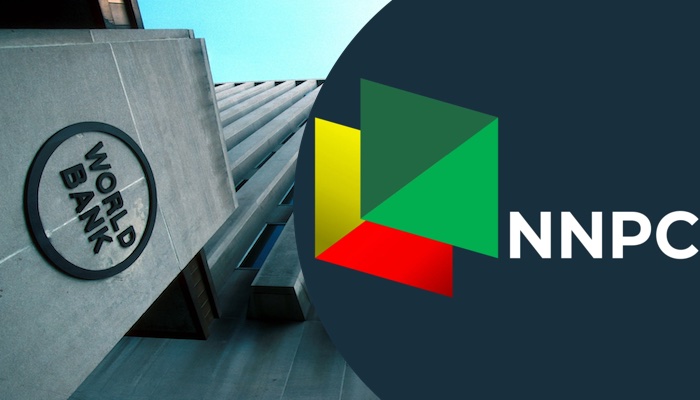BREAKING: World Bank: NNPC Remittance Fell By N500 Billion In 2024 Despite Revenue Growth

The World Bank has reported a significant decline in revenue remitted by the Nigerian National Petroleum Company (NNPC) Limited, despite a surge in gross revenues collected by Nigeria’s main revenue agencies in 2024.
According to the World Bank’s latest Nigeria Development Update (NDU), published on May 12, NNPC’s remittance to the federation account dropped from N1.1 trillion in 2023 to N600 billion in 2024, marking a N500 billion decrease.
The report attributed the drop to the “implicit petrol subsidy,” which remained in place until September 2024.
While President Bola Tinubu announced the end of the petrol subsidy regime on May 29, 2024, NNPC later disclosed on August 19 that the federal government owed the company N7.8 trillion for under-recovery, despite the government’s consistent denial of subsidy continuation.
The World Bank noted that, although gross revenues collected by Nigeria’s main revenue agencies—Federal Inland Revenue Service (FIRS), Nigeria Customs Service (NCS), NNPCL, and Nigerian Upstream Petroleum Regulatory Commission (NUPRC)—rose significantly from N16.5 trillion (7 percent of GDP) in 2023 to N29.5 trillion (10.6 percent of GDP) in 2024, NNPC remained the only agency with declining remittances.
The largest revenue increases, according to the report, came from foreign exchange-denominated sources, benefiting from the removal of the FX subsidy.
These sources include oil revenues (royalties, taxes, signature bonuses), customs revenues, and the foreign trade-related component of value-added tax (VAT).
Despite the removal of the subsidy in October 2024, NNPC did not immediately transfer the resulting revenue gains to the federation, instead starting remittances in January 2025 at a rate of 50 percent.
The remaining half is being used to settle past arrears. As of February 2025, NNPC’s claimed arrears stood at N7.8 trillion, while the federation’s claims totaled N6.1 trillion, leaving a net arrears of approximately N1.7 trillion.
The World Bank emphasized that Nigeria’s fiscal outlook remains cautiously optimistic but depends on consolidating recent financial advances.
It recommended that the federal government ensure full revenue gains from the subsidy removal—estimated at about 2.6 percent of GDP in 2024—are transferred to the federation.
Additionally, the World Bank urged the government to enhance transparency by publishing reconciled monthly fiscal reports, quarterly budget implementation reports, and raw Federation Account Allocation Committee (FAAC) data on time.
It also recommended conducting a forensic audit of NNPC and clearing the backlog of audited financial statements from 2021 to 2023.
